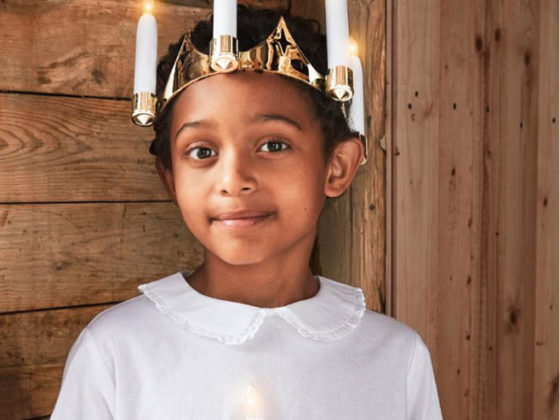The rise of the right is happening on a global scale: political parties across Europe are bracing for upcoming elections to turn out nationalist results in the style of Brexit and Trump, but with the faces of Marine Le Pen and Viktor Orbán. Sweden isn’t excluded from this; support for Sverige Demokraterna and their anti-immigration platform is also growing, thanks to recent influxes of refugees.


In a Time When White Nationalism Is on the Rise, Here's How Sweden Fights Racism
It’s not just through political parties that the face of the right is becoming more pronounced. Post-Brexit England saw an enormous uptick in hate crimes: a staggering 41% increase in racially or religiously aggravated offenses. The New York City Police Department reports a shocking 115% increase in hate crimes against Jewish, LGBTQ, and Muslim communities since Trump’s winning the general election on November 8. In the supposed egalitarian utopia of Sweden, Islamophobic hate crime is on the rise, and 68% of hate crimes in 2015 were xenophobic (on the bright side, crimes against LGBTQ folk went down!).
Earlier in 2016, Sweden became the first country to have a phone number that you could use to contact a random Swede at any time; the Swedish Number was answered by volunteers, who installed an app that would forward calls using VoIP. I called it and was connected to a Swede in Gothenberg. We had a brief conversation about Swedish weather (“not as cold as you think in the winter, but very dark”) before he abruptly told me he thought Sweden was full of immigrants draining the social security system while they “sat around all day and watched television.” “I’m not saying I agree with Trump,” he said, “but Sweden should be for Swedes.” Ironically, he himself had come to Sweden from Romania as a child, although had long since been a naturalized citizen.
At the beginning of December 2016, Swedish department store chain Åhléns ran an advertisement for children’s costumes for Sankta Lucia, the festival of lights on December 13. The ad showed a child of indeterminate gender and dark skin wearing a Lucia crown (a circlet of candles), and quickly became the focus of a stream of online abuse. “Lucia is Swedish,” a Facebook commenter said, “and should have blonde hair and blue eyes.” Åhléns eventually pulled the ad because it was being reposted on white supremacist forums, and the family of the child were worried about their safety.
Unfortunately, this kind of capitulation by larger businesses has made racists feel like they have a toehold. As a result, smaller businesses are attempting to fight back, using concerted campaigns of diversity and inclusivity. Malmö-based start-up My Esteeme makes dolls of varying skin and hair colours, with the goal of providing children with toys that look like them. After Åhléns dropped their ad, My Esteeme responded with a photo of their biracial doll Mathias wearing a Lucia crown, tagged #Jagärhär (I am here), a hashtag created earlier in the year by Mina Dennert to show solidarity and fight hate online.
Olika (“Different”), an online bookseller, has a stated goal of challenging restrictive stereotypes and building a more inclusive society. They also make and sell games, and do corporate education seminars on diversity. A reader says “We buy so many of their books in our Kommun. There are children of all ethnicities, gender identities, economic classes and physical abilities in their charming books. They are absolutely brilliant and never preachy.”
The web series Regnbågsfamiljen (“Rainbow Family”) was developed by writer and director My Sandström when she had a baby and was disappointed in the availability of media that showed multiple kinds of families. The first episode shows one of the dads trying to figure out how to propose to one of the other dads. The point of the show, the producers say, is not to focus on the diversity of the family, but rather to show the everyday lives of children in a variety of family structures, normalizing them.
Malmö is Sweden’s third-largest city, and accepted a high number of refugees due to its large port and proximity to Copenhagen; 31% of the population were born abroad, with the largest group coming from Iraq. It has a reputation for being crime-ridden, with the SD party claiming immigrants are lashing out against “ethnic Swedes” (translate: white people). In reality, Malmö recently launched a city-wide project to train teachers in combating anti-Semitism among their students. 300 teachers will participate in the first round of workshops, which is jointly funded by the municipal government and the Jewish community. Local events such as the Feministisk Festival celebrate diversity with workshops, community round-tables, and late-night parties, which feature multicultural poetry and song nights.
While racism may seem to be on the rise, it’s refreshing and hopeful to find small businesses and organizations combating its effects wherever and however possible. Efforts that seem small can build to great heights when they are piled together.